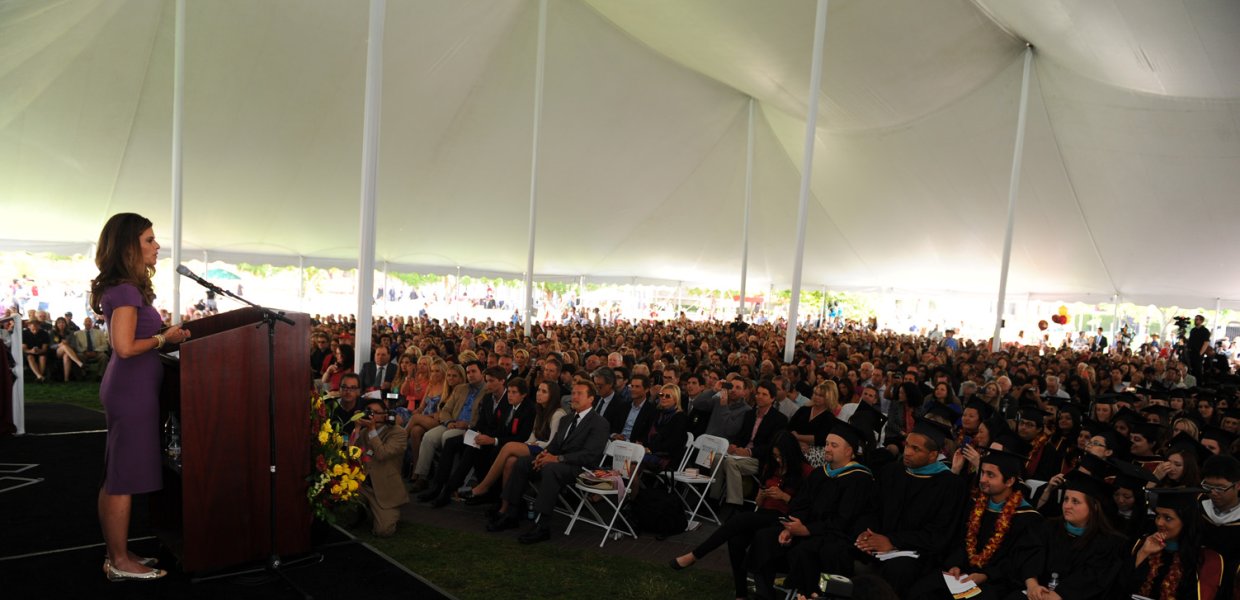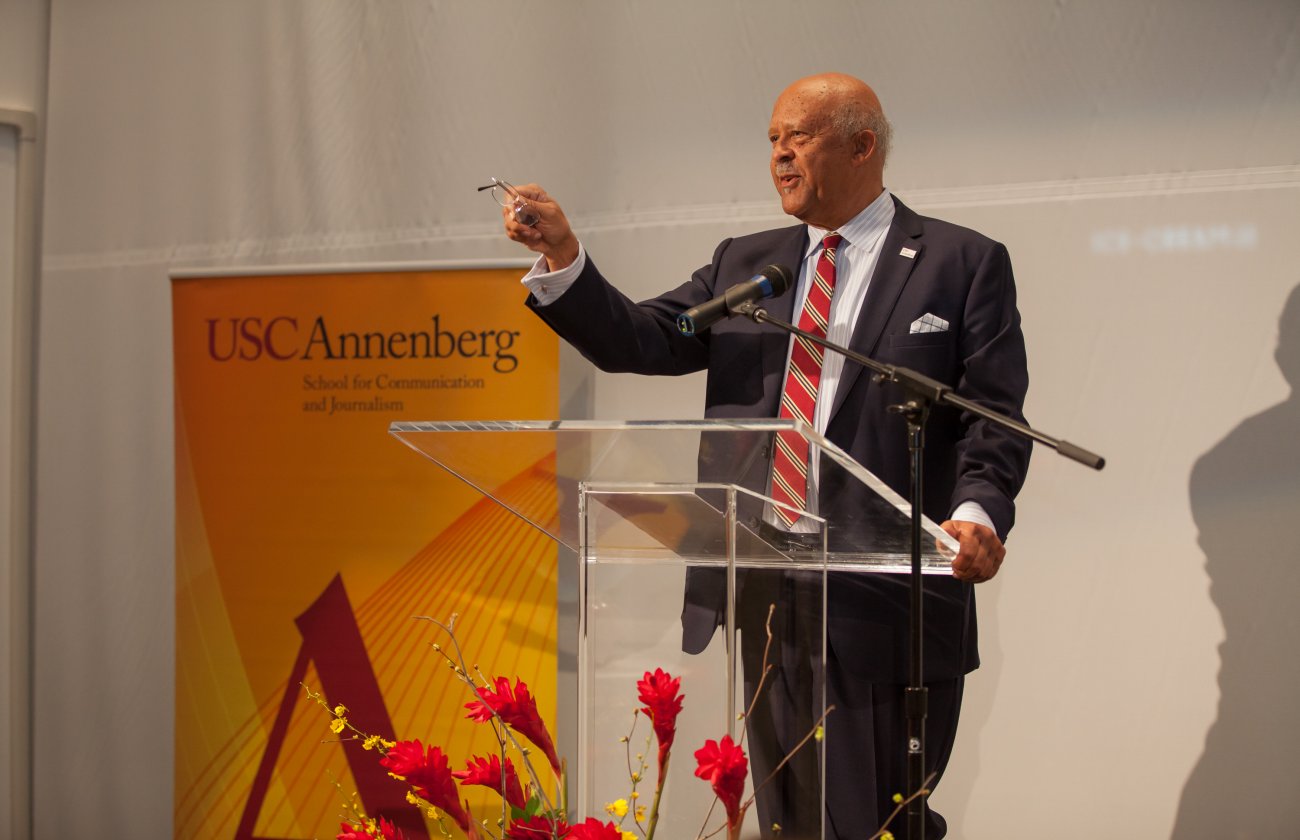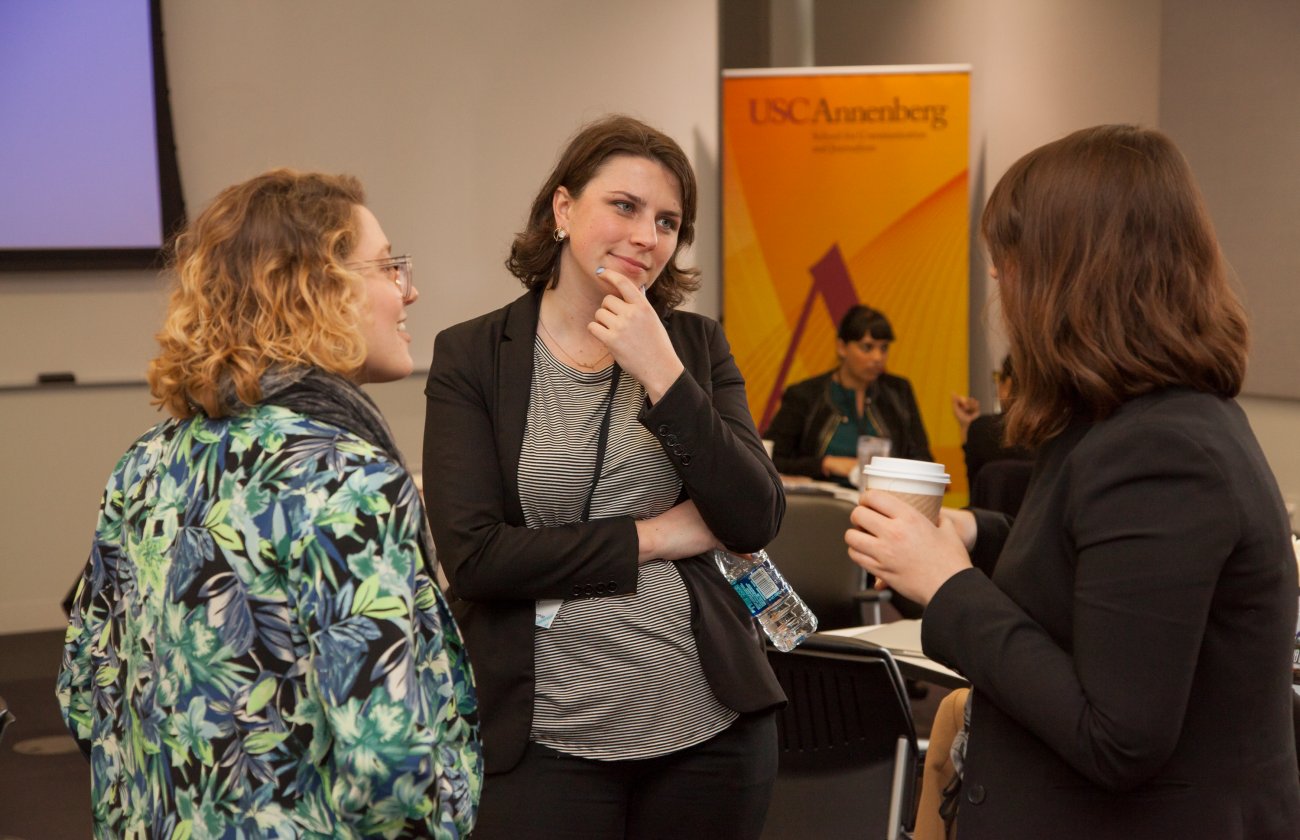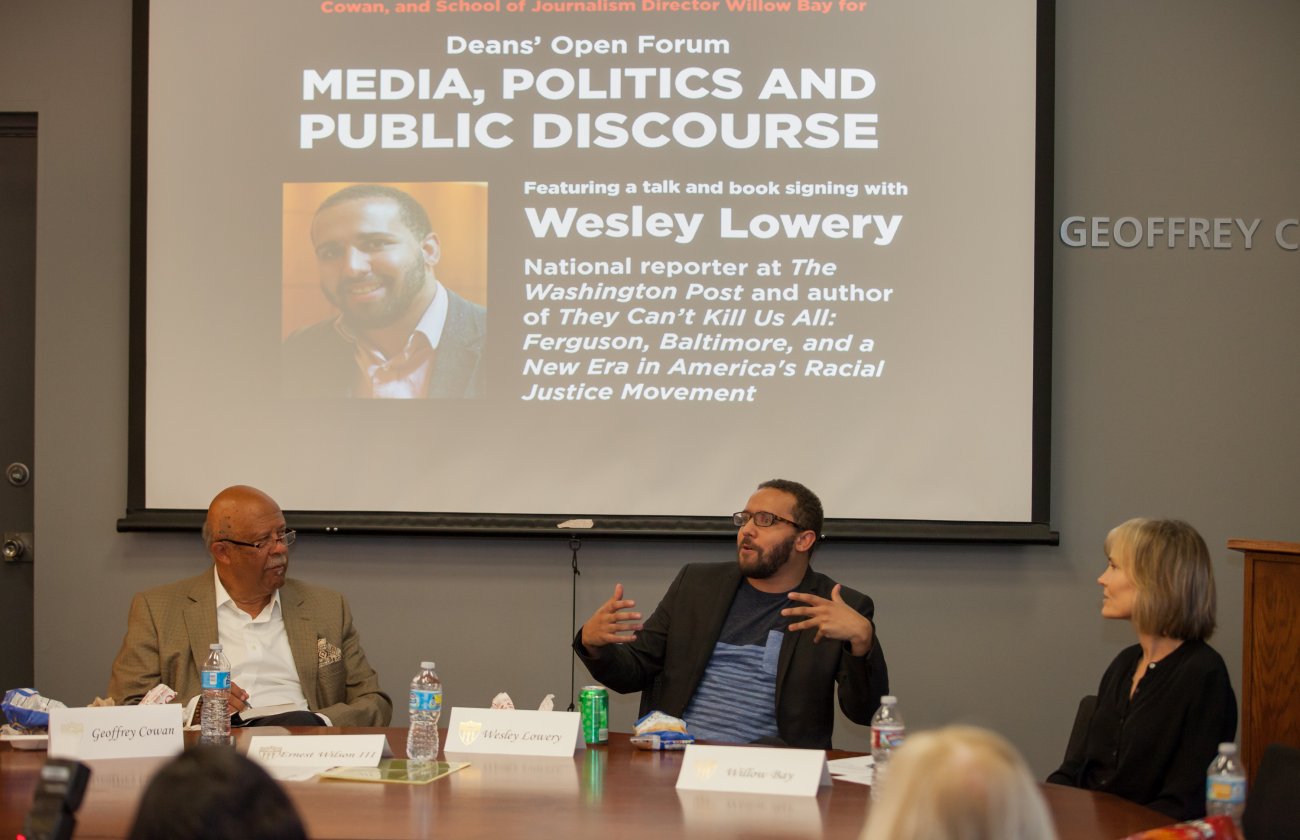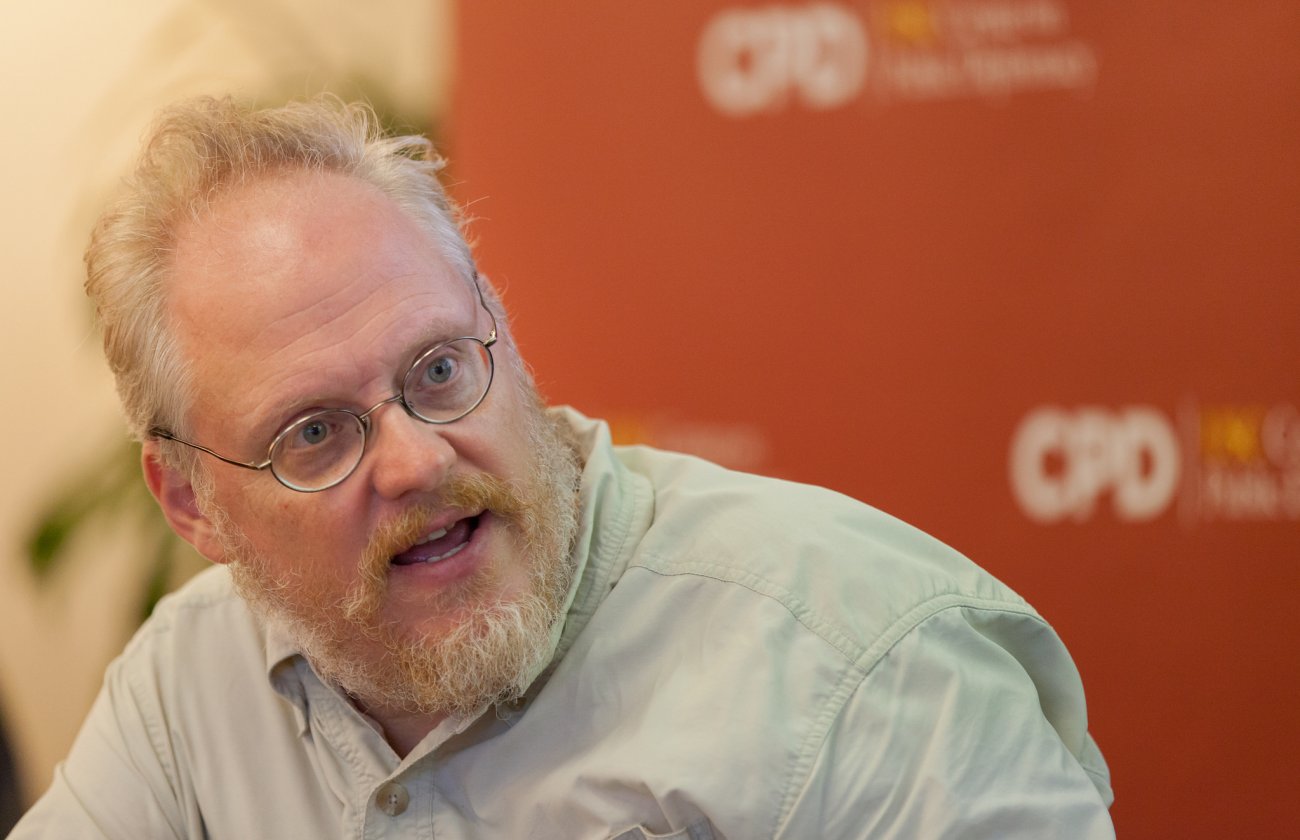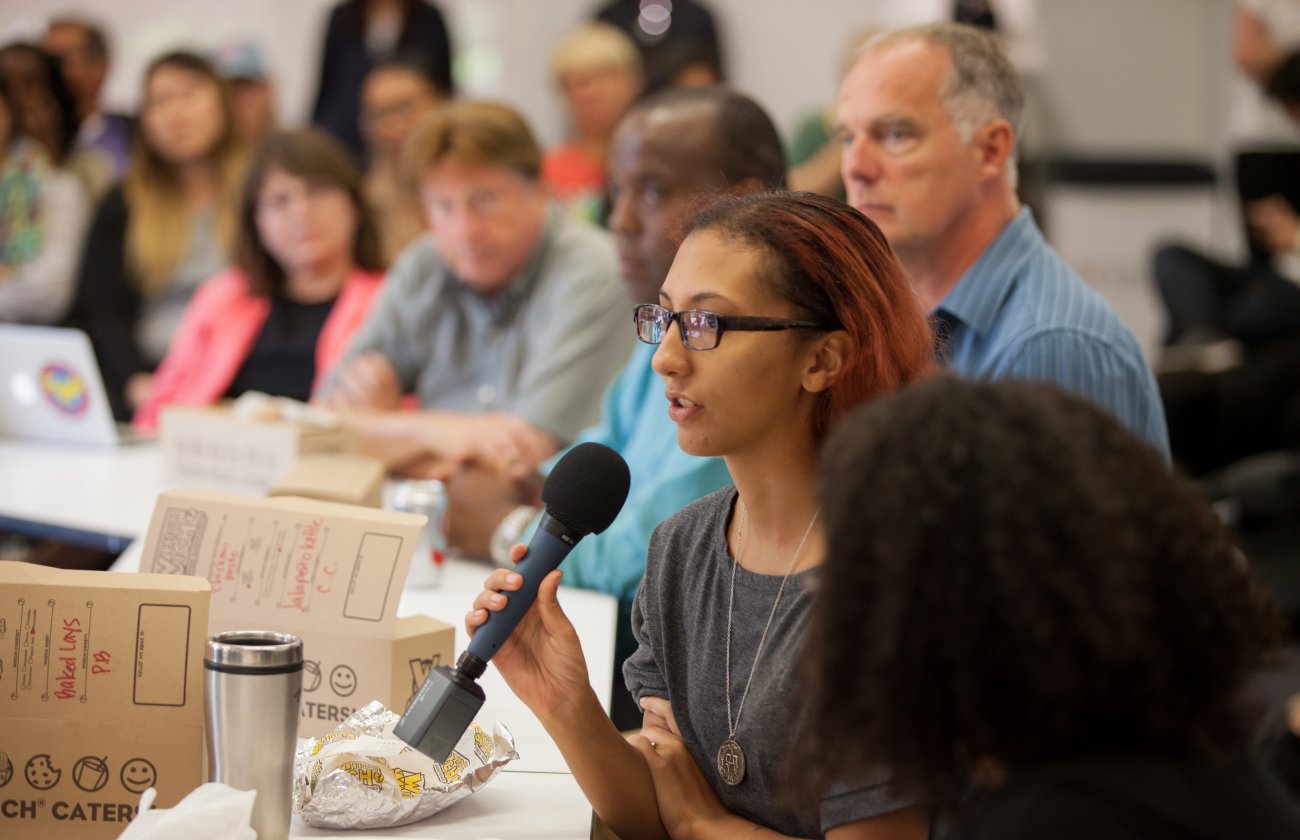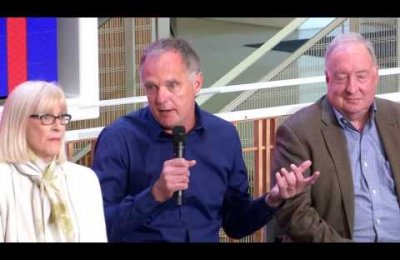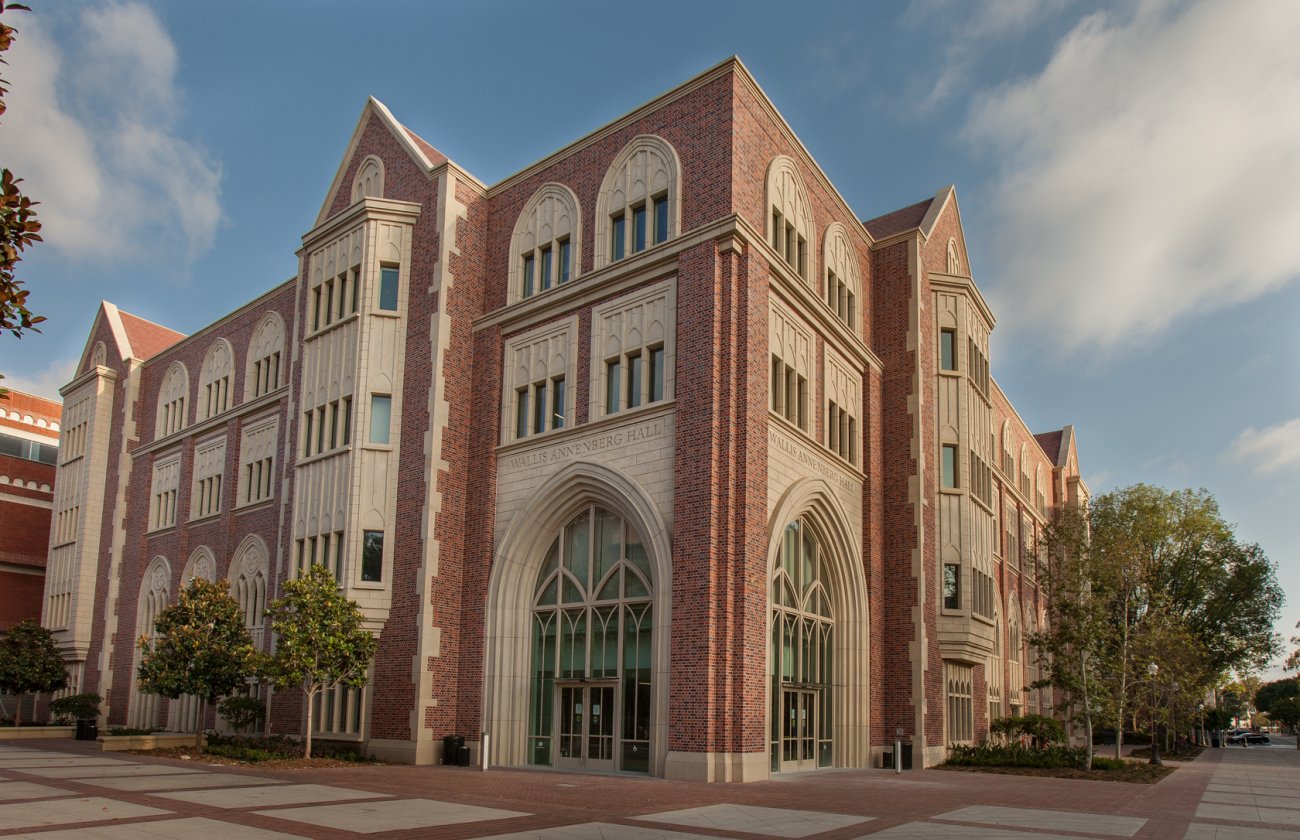As part of the University of Southern California's 129th Commencement Ceremonies, USC Annenberg celebrated the conferral of bachelor’s, master’s and doctoral degrees to 872 students on May 11. (View photos here.)
Dean Ernest J. Wilson III reminded graduates of how important their roles in the new, connected world of communication will be.
"All of you – using your training and education as a base – are prepared not to be just bystanders in the transition to a new digital economy, where we can shine light into the dark corners and where we can communicate more effectively with our neighbors here and around the world. We don’t want you to be observing from the sidelines. We want you to lead these changes."
School of Communication
At the School of Communication ceremony, former California First Lady, author and journalist Maria Shriver delivered a moving speech (watch the video) from the perspective of a professional communicator – and a mom. Her daughter, Katherine Schwarzenegger (B.A. Communication '12) was in the audience of more than 500 graduates.
“I’m pausing to be in awe of this moment, that I’m standing at my first child’s graduation from college,” she said to her daughter, seated in a crowd of robes and mortar boards. Her voice choked, but she continued: “Katherine, I’m in awe of you – where are you? I’m in awe of the woman you are, your grace and courage and strength. I’m so proud of all of you, and what you’ve done to get here.”
She won laughs as she recalled her own graduation from Georgetown University, when her friends were drinking and celebrating (with champagne under their robes) – but she was worried. It took her until October to find a job in TV news after graduating in May.
She gave graduates straightforward advice they might not have heard from professors, parents and friends. At a time when everyone they know is asking them, “What’s next? Do you have a job? Where will you live?” graduates should pause, consider what they want to do with their lives and make deliberate choices, Shriver said.
The “What are you going to do next?” question dogs us our entire lives, she said.
“Even today at my age, people come up to me all the time asking, ‘Maria, What are you doing? What’s your job? Are you going back into television? What are you doing?’ It’s like what we’re doing at this precise moment doesn’t even exist. Everyone is focused on the next thing,” Shriver said.
The pressure won’t stop with landing the first job, so try not to get caught up in everyone’s expectations and find what you want to do most, she said.
“Today, I have one small wish for you. Before you go out and press that fast-forward button, I’m hoping – I’m praying – that you’ll have the courage to first press the pause button.”
By pausing, graduates will have a chance to reflect and move into their careers with purpose, Shriver said. USC Annenberg graduates have the opportunity to affect communication positively, and they should take advantage of it.
“You have the power, each and every one of you, to change the way we as a nation speak to one another – the way we write, the way we use our words. I truly believe you can change our national discourse for the better. You have the chance to change the way we talk to one other, what we read in newspapers and on the web and in magazines. You can help us change the channel. I hope each and every one of you dare to bring change to our community by changing the way we communicate.”
Rather than using “criticism and fault-finding,” graduates should work to change communication for the better. “Change it from nay-saying and name-calling to acceptance and appreciation. Change it from screaming to speaking… from dissembling and dishonesty to openness and explanation.”
“Show us the way, Annenberg graduates. Take us out to what I’ve been calling, ‘the open field.’ Go beyond, to what can only be imagined. I know you can do it, because a communications degree means nothing today unless you take it beyond where we are and into the unknown. And in order to do that, you’re going to have to learn how to listen and how to pause.”
Even during their work lives, which will be hectic, it will be important to take a breath and reflect on communicating inwardly as well as outwardly, Shriver said.
“Take the time to find out what’s important to you. Find out what you love, what’s real and true to you, so that it can infuse and inform your work and make it your own,” she said.
She was interrupted with applause when she cautioned grads to verify information before disseminating it.
“It’s up to you to decide if you want to pass on garbage, or if you want to check the facts,” Shriver said. “Pause before you hit the send button and forward a picture that could ruin somebody’s life. Pause before you write something nasty on somebody’s wall because you think it’s funny. Believe me, it isn’t.”
Shriver also won loud, supportive applause with this line: “Pause before forwarding the untrue and inflammatory tidbit that makes it so difficult for would-be public servants to serve, and for their families to exist in the public arena.”
Communication has so much power to do good, Shriver said. And with that power comes responsibility.
“So remember to pause and reflect – before you sign on with someone or some organization whose work you do not admire and don’t respect and you can’t stand up for. Who you work for is as important as what you do,” she said.
She urged graduates also to be thankful for the journey that brought them here – and to thank the people who made it possible. And she encouraged them to do that with pen and paper (and mentioned she’s never hired anyone who didn’t send a hand-written thank-you note after an interview).
The audience also appreciated this advice: “While you’re pausing, I hope you’ll do something refreshingly different and talk to your mother, your father or someone you care deeply about. Not text them – but actually talk to them with your mouth.”
Finally, Shriver left the group with the inspirational message to be courageous as they make their way.
“Wherever you go in live, however fast you’re going, remember this: When you’re in doubt, pause. Take a moment look at all of your options, check your intention, have a conversation with your heart. And then always take the high road.
“Fight to make a difference in this world. Fight for good. Fight for fairness. Fight on.”
School of Journalism
At the School of Journalism ceremony, ABC News anchor Christiane Amanpour, who also delivered the address for the USC main commencement ceremony, told the crowd of more than 300 journalism and public relations graduates: “I feel very at home here with all of you journalists.”
She praised graduates ’ enthusiasm and said they were right to be “boisterous and curious and eager to set off on adventure.”
Citing her own experiences in Bosnia, Rwanda and elsewhere, Amanpour beseeched the audience to never confuse objectivity with neutrality, or hard-sought fact with the chatter of under-informed opinion.
She urged humility and stressed responsibility among all of the graduates – public relations and journalism alike – as they rise to positions of power.
Amanpour also made sure the crowd knew that her profession has a bright future. “There is a great, great need for wonderful journalists who have been trained at a great school. I am massively hopeful. There are jobs – some of them may be less traditional than before,” she said, adding: “I want you to go out there with a great sense of optimism and can-do.”
The importance of journalism as a career can’t be overstated, she said. “You actually cannot have a robust and healthy democracy without a healthy and robust journalism profession.”
Amanpour rallied the students by passing along lessons and observations gained during her highly acclaimed career.
“I learned,” Amanpour said, “that this is the most noble profession known to humankind.”
